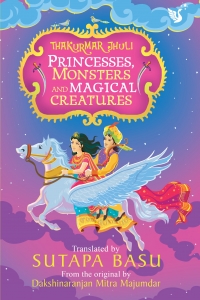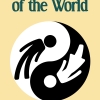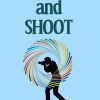
Around 1907, Dakshinaranjan Mitra Majumdar collected folktales from villages and towns across Bengal and rendered them into a unique collection. He added sketches and drawings with his own pen for some of the tales and thus compiled Thakumar Jhuli. Generations of children over years have spent spell-binding hours exploring the adventures of princes, princesses, monsters, and enchanting creatures of the stories in this anthology.
This book is synonymous with the cultural heritage of the region from where the author sourced the folktales. By writing this anthology, the author captured in perpetuity the old traditions of storytelling. Today, these oral traditions are either lost or rarely found. Consequently, this anthology now holds the position of a literary legacy. This special children’s fiction needs to garner a wider reading audience but that can only happen if it is translated into a universally accepted medium. It can easily turn into an avenue that spreads the flavour of folk literature beyond the region and even further.
When I was first introduced to this book, I was too young to read and was lucky to have a grandmother who read aloud the stories to me. Later, when I wanted to share the favourites with my friends, I realised that they had no idea what I was talking about.
While children with knowledge of the Bengali language will certainly read the original collection, what about those children who do not know the language? Why should they be deprived of a magical romance sprinkled with flying horses, speaking birds, cunning foxes, indestructible monsters, bold princes, and bolder princesses?
This compelling idea that an English edition of this heritage literature would make the collection accessible to a greater number of children galvanized me into translating Thakumar Jhuli into English.
At the outset, I must clarify that this edition subtitled Princesses, Monsters and Magical Creatures is a translation and not a transliteration.
I have been writing children’s fiction for years now and I was fully aware that this endeavour was not going to be child’s play (forgive the pun). Today, children’s worlds are as wide as the World Wide Web. To engage such readers with fantasies that might seem archaic or detached from their everyday life was not going to be a picnic. Therefore, I needed to tread carefully.
I intended to and have adhered strictly to the original narrative. Nevertheless, a few adjustments have been unavoidable. Sometimes, I found metaphors inherent in the tales that do not have equivalent expressions in English or linguistic nuances that had to be replicated into a language with its own distinctive subtleties. Discreetly and with a lot of thought, these instances had to be adapted into parallel expressions. Working with these constraints the translated texts might appear to contain diversions from the original. But these are crucial techniques aimed to entice children into a fantasy world that they will relate to.
This edition reflects the region’s cultural heritage in its semi-realistic illustrations and icons reminiscent of the rice-paste alpona patterns, a familiar sight at all auspicious occasions in Bengal. The purpose is to passively inculcate into young readers an appreciation of ethnic folk art.
It would be amiss of me if I do not acknowledge the many people who have stimulated and encouraged me in this venture.
For my infatuation with the original Thakumar Jhuli, I owe a great debt to Dakshinaranjan Mitra Majumdar and my grandmother. Not only did they infuse memorable magic into my childhood, but they also provoked in me a deep desire to make other childhoods equally if not more captivating. Readomania and many artists associated with the project have been my constant and stalwart supporters in this endeavour.
And of course, I am deeply indebted to you, my dear Reader, for indulging me in my forays into various genres. This translation is yet another literary exploration. The only difference being this edition of Thakumar Jhuli goes out to you with a tiny piece of my heart pinned to it. For all young readers, it is my fervent wish that these folktales take you on a fascinating journey through the world of Princesses, Monsters, and Magical Creatures.
About the Author







Comments